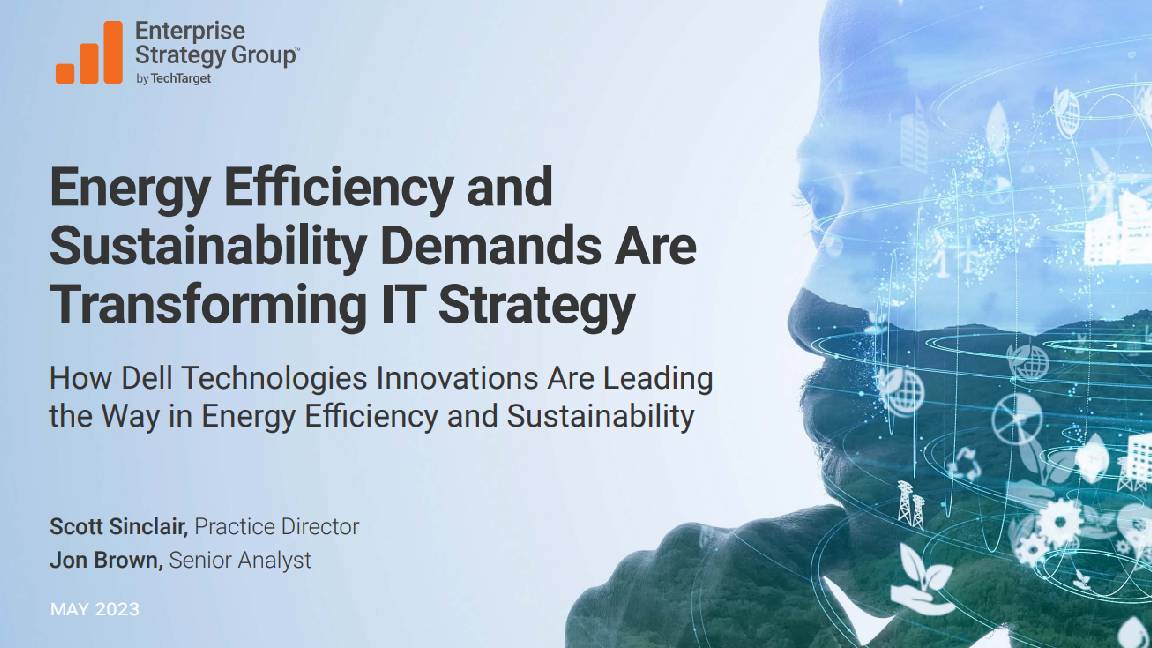Small businesses are ‘flying blind’ on carbon emissions and struggling to meet sustainability goals – and the blame lies with big tech vendors
A survey from Wasabi shows smaller businesses don't trust Scope 3 emissions data from big tech providers


Sign up today and you will receive a free copy of our Future Focus 2025 report - the leading guidance on AI, cybersecurity and other IT challenges as per 700+ senior executives
You are now subscribed
Your newsletter sign-up was successful
Small businesses are worried they won't be able to give an accurate report on their carbon footprint, and that's largely down to tech partners and vendors failing to give clear data.
That's according to a survey of 1,200 business decision makers by Sapio on behalf of Wasabi, which found that two-thirds of SMBs believe they can provide accurate information about the emissions of their tech stack, versus three-quarters of larger companies.
Such information is increasingly important not just for a company's own sustainability goals, but to help meet incoming regulations, notably the UK's Sustainability Disclosure Requirements, which are expected to begin enforcement next year.
While that is expected to initially focus on larger companies, the report noted that the vast majority of British businesses are in the SMB range, and fewer than half believe they have reliable figures when it comes to public cloud contributions to carbon footprints.
"SMEs are the unsung heroes of sustainability; quietly, but powerfully driving progress toward broader environmental goals," said Kevin Dunn, Vice President and General Manager of EMEA at Wasabi.
"To keep that momentum going, they need real support from their technology partners.”
Dunn added that the environmental impact of digital infrastructure is “hidden in a black box”, and this trend is harming smaller businesses.
Sign up today and you will receive a free copy of our Future Focus 2025 report - the leading guidance on AI, cybersecurity and other IT challenges as per 700+ senior executives
“Without clear, trustworthy emissions data from tech providers, SMEs are flying blind, and that puts them at real risk,” he said. “With the right transparency and backing, these businesses can become an even greater force for sustainable change than they already are."
Small businesses need scope 3 assistance
Emissions tracked by companies are divided into three categories: Scope 1, which refers to assets directly owned by a business, such as buildings; Scope 2, which includes indirect emissions from energy used for work; and Scope 3, which refers to emissions in the supply chain or by providers, such as cloud vendors.
Last week, Google issued its latest emissions report, showing cuts to Scope 1 and Scope 2 emissions, but an increase of 22% in Scope 3 - largely due to ongoing AI infrastructure investments.
The Wasabi report noted that Scope 3 emissions make up as much as three-quarters of a company's total carbon footprint, highlighting the importance of gathering data on those emissions from partners and suppliers.
Half of small businesses told Wasabi their technology partners and vendors weren't "giving them a clear or reliable picture," while 29% said the high number of vendors they work with was "muddying the waters".
Because of that, 47% of firms said they need their technology providers to do more when it comes to sharing emissions data. Moreover, they need to ensure it's trustworthy and accurate, as this was a concern raised by 49% of respondents.
Poor data is hampering progress
Four-in-ten SMBs and large businesses surveyed said they struggled to make informed decisions because of poor data, impairing future tech investment.
While 57% of the small businesses surveyed said they felt confident in the accuracy of their emissions data for on-premises and private cloud technologies, the figure fell to 44% when it came to public cloud.
Despite such challenges, two-thirds of small firms said they believe they can still provide accurate data about their emissions with regards to technology infrastructure.
Make sure to follow ITPro on Google News to keep tabs on all our latest news, analysis, and reviews.
MORE FROM ITPRO
- Three ways sustainability tech is helping businesses meet climate goals
- Building a sustainable business model in tech
- How businesses can make their IT operations more sustainable in 2025
Freelance journalist Nicole Kobie first started writing for ITPro in 2007, with bylines in New Scientist, Wired, PC Pro and many more.
Nicole the author of a book about the history of technology, The Long History of the Future.
-
 Mistral CEO Arthur Mensch thinks 50% of SaaS solutions could be supplanted by AI
Mistral CEO Arthur Mensch thinks 50% of SaaS solutions could be supplanted by AINews Mensch’s comments come amidst rising concerns about the impact of AI on traditional software
-
 Westcon-Comstor and UiPath forge closer ties in EU growth drive
Westcon-Comstor and UiPath forge closer ties in EU growth driveNews The duo have announced a new pan-European distribution deal to drive services-led AI automation growth
-
 How SMBs can DIY their IT implementation and support
How SMBs can DIY their IT implementation and supportFeature For some small and medium-sized businesses, the third-party expertise and support might be out of reach. What’s the alternative?
-
 ‘The opportunity ahead is immense’: Kaseya’s new CEO eyes SMB gains and closer ties with partners
‘The opportunity ahead is immense’: Kaseya’s new CEO eyes SMB gains and closer ties with partnersNews The former Intuit leadership veteran will spearhead Kaseya’s next phase of customer-centric growth
-
 ESET targets partner profitability with new MDR bundle
ESET targets partner profitability with new MDR bundleNews The security firm's managed detection and response services and products are now available as part of a single SKU to enhance the partner sales process
-
 Microsoft just hit a major milestone in its ‘zero waste’ strategy
Microsoft just hit a major milestone in its ‘zero waste’ strategyNews Microsoft says it's outstripping its zero waste targets, recording a 90.9% reuse and recycling rate for servers and components in 2024.
-
 HP’s sustainability drive is paying off for channel partners
HP’s sustainability drive is paying off for channel partnersNews Channel partners that bought into HP’s sustainability program saw sales increase as customers react positively
-
 Beyond the upgrade: How to maximize IT investments and minimize waste
Beyond the upgrade: How to maximize IT investments and minimize wasteHow to maintain optimal performance and productivity with your fleet of hardware and stave off the next upgrade cycle for a bit longer
-
 Energy efficiency and sustainability demands are transforming IT strategy
Energy efficiency and sustainability demands are transforming IT strategywhitepaper How Dell Technologies innovations are leading the way in energy effiency and sustainability
-
 Energy efficiency and sustainability demands are transforming IT strategy
Energy efficiency and sustainability demands are transforming IT strategywhitepaper How Dell Technologies innovations are leading the way in energy effiency and sustainability
